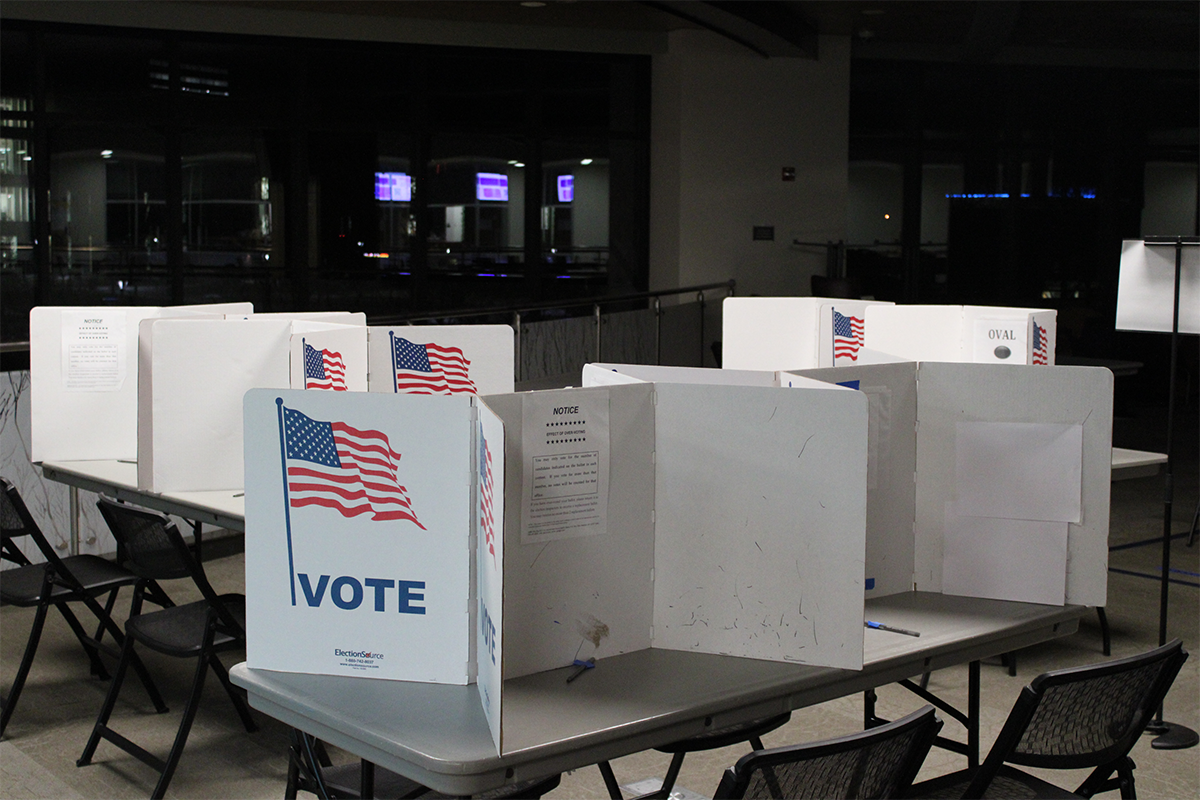 Butch McCartney
Butch McCartney
Terrorists don’t grow on trees.
That was the point that Ali Abootalebi, assistant professor of political science, tried to make as he spoke to about 20 students and faculty at a Philosophy Club meeting Thursday.
Junior Andrew Ruggles, Philosophy Club president, invited Abootalebi to speak.
“I thought it would be appropriate in light of recent events to not only look at the events, but look at the thought process that would inspire a person to take the lives of civilians and kill themselves in the process,” Ruggles said.
To look at a possible mind set of a terrorist, Abootalebi spoke of the viewpoint the accused Osama bin Laden might have.
“He must hate us, but his line of thinking is not irrational…it is built on cause,” Abootalebi said.
Abootalebi stressed that actions of terrorists can usually be better defined as reactions of terrorists.
As a Muslim, he offered his opinion on why the Arab world may be resentful toward the United States.
“In promoting our national interests, we impact their region through a number of different ways including cooperation with undemocratic governments, militarization of the region through arms sales and promotion of consumerism,” Abootalebi said.
He referred to the United States imposing values on the Muslim culture, such as blue jeans and rock `n roll, which aren’t compatible with their religion.
Strong Muslim beliefs may lead some Islams to blame the United States, and its movies and magazines for their cultural corruption, Abootalebi said.
He said the Arab world could also be upset with the U.S. because of its presence in the Gulf region.
He gave the example that the bomb the United States dropped on Iraq had depleted uranium shells, material made out of steel, perhaps from dismantled nuclear bombs. The shell was still contaminated and resulted in radiation and increased cancer rates in the civilians.
The United States trying to maintain sanctions and being a historical supporter of Israel could also fuse a terrorist’s anger, Abootalebi said.
“Overall, they see us as a bully that tells governments what to do,” he said.
After explaining what could have fueled the terrorist’s anger, he addressed why they attacked when it would seem contradictory to do so because of religious beliefs.
“It is an idea in Islam that if you die for your religion, you can go to heaven,” Abootalebi said.
He pointed out that historically that meant defending the religion, not harming others for it.
He said that if bin Laden is behind this, he probably believes that he is defending his religion because of how he views the U.S. as corrupting it.
The final discussion at the meeting revolved around what the U.S. should do.
Abootalebi dislikes Bush’s reaction to smoke them out because he thinks it puts the U.S. in a corner where it has to act. He feels that there is the threat of other terrorist cells being ready to act in the U.S. if it heavily bombs Afghanistan.
“Maybe we are falling into the trap by acting as such,” he said. “I’m not saying they’re going to grab another plane, but there is a lot you can do in a free society.”
He thinks the U.S. should get the United Nations involved, and get them to send troops.
“We can’t just go ahead and kill tons of people,” Abootalebi said.
Olaf Lind, a senior philosophy major, was glad he attended the meeting.
“I thought it was interesting. I think it’s really a good thing to be able to speak openly about fanaticism in all its forms, because there are fanatics in almost every ideology,” Lind said.






